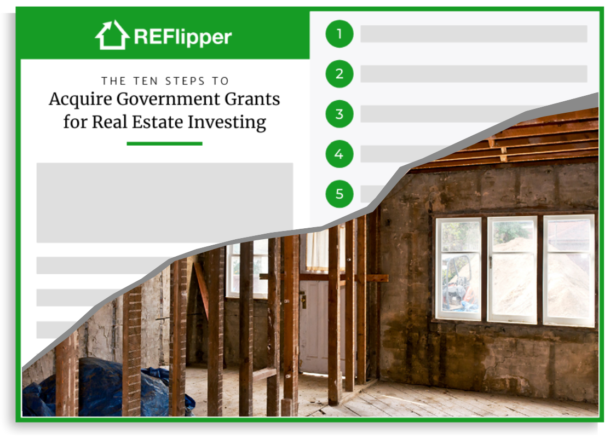The HUD is the US Department of Housing and Urban Development. One of its longest-running programs is the HUD Federal grant. It was first enacted by President Gerald Ford in 1974.
The HUD Federal grant exists to provide affordable housing, so average Joes and Janes like you and I can apply to get this grant for “community development activities”. In this case, that refers to affordable housing. Also known as the Community Development Block Grant, CDBG grants provide funding to states, cities, and counties to provide decent and suitable living environments for low-income individuals.
The HUD consists of 20 grant programs that provide “discretionary funding”, which basically means small scale funding. The 20 grants provide funding for affordable housing, community, and economic development, fair housing, homelessness, supportive housing services, etc.
So, the question becomes, “How do I get a HUD Federal grant?”, and more importantly, “Which category do I fall into?”
What is the Purpose of a HUD Grant?
The HUD grant is essentially a subsidy that uses tax dollars to reduce housing costs for low-income individuals and families. This helps to reduce homelessness in the US, and increase homeownership.
The grant can be used to either buy, build or repair existing homes. The grant provides for both water and sewerage systems to be installed in the home. In fact, the grant can be used for all sorts of housing purchases and repairs including:
- Acquiring a home
- Acquiring a property for public purposes
- Constructing/repairing water and sewerage facilities as well as streets/public works
- Relocating and demolition
- Rehabilitating public and private buildings
- Assisting nonprofit entities in community development
- Assisting for-profit companies in economic development or job creation activities
- Planning activities
How Do I Get a HUD Grant?
Applying for a grant from the HUD is a four-step process. While these grants aren’t usually available to individuals, you can actually apply for funding through an organization.
Make sure you choose an organization that has IRS tax-exempt status. So you can apply through a charity or through a higher education institution like a University. You can also apply for a grant through a government agency in most cases.
Step 1
Visit www.grants.gov. This website is the one-stop-shop for all US Federal grants. You can search specifically for HUD-funding here since you can filter all the grants by a government agency. After you select the Department of Housing and Urban Development, you will see all the grants listed neatly.
Step 2
Make sure to look at the closing dates for each HUD Federal grant. That’s the last day for the agency to receive your application. This is important since you’ll need a good amount of time to complete your application.
Read the description for each grant to find out if you’re eligible (more precisely if your organization is eligible). Make sure that the purpose of the grant fits with your agency’s goals and missions as well.
Step 3
Create a grant proposal. This is no mean feat. It will require some time to complete your application. That’s why you should always choose a grant with a closing date 2-3 weeks away. It is advised that you should set aside about 40 hours to complete your grant application.
The application includes everything from basic agency information all the way to specific details about your request. If you don’t make a convincing argument, your application may be rejected.
Step 4
Submit your proposal online at www.grants.gov. The system will take you through a checklist of items to ensure that your application is complete. Pay close attention to the checklist to make any changes or add things you’ve forgotten. The process can proceed differently depending on the agency and the grant.
It usually takes 3-6 weeks for any individual application to get approved.
Calculating the HUD Income Limit
Individuals who plan to use a HUD grant for their own residence or a longer-term rehab done under their own personal identity have to fall within a specific income limit in order to qualify for a HUD Federal grant. HUD grants to business, nonprofit, and government entities do not have such income limits, rather specific use limitations. There are two basic income limits that the HUD looks at for HUD grants and loan guarantees:
- Estimated Combined Median Family Income: This is taken from the American Community Survey data published every few years. The survey is used to assign each metropolitan area within a State and every non-metropolitan county with the appropriate median income.
- Income Limits Derived from the Estimate: If the latest data isn’t available, then an average rate of inflation is applied to estimate the median family income for the current year.
This process uses the CPI (Consumer Price Index) published by the Congressional Budget Office.
So basically, the median family income is estimated by using the latest available data and extrapolating it using inflation. You can take a look at the individual and median family income limits for HUD grants at the “HUDUSER” website. These webpages will tell you if you qualify for a grant depending on which State and Area you live in.
What is a HUD First-Time Buyer Grant?
The HUD first-time buyer grant is a specific program that allows you to purchase, or build a home. You can qualify for the grant if you:
- Haven’t owned a home for three years prior to the purchase of the new property. Even if you have resided in a property, you didn’t have primary ownership. You can even apply if you have a spouse that meets this criterion.
- Are now a ‘displaced homemaker’ who only owned a property with a former spouse.
- Have only owned ‘non-permanently fixed foundation residences’. These are residences that can be detached from their foundations (usually a slab of concrete), and moved. Essentially, if you’ve owned any sort of mobile home before, you qualify for this grant.
- Have only owned properties that don’t meet State, Local, or Model building codes.
HUD Section 542(b) Grants
HUD Section 542(b) states that in case receivers of the grant default on their mortgage payments, they can be reinsured through Fannie Mae and Freddie Mac. This agreement allows for risk-sharing on the mortgages on a 50-50 basis. Hence, if you’re in need of assistance to pay for your mortgage, you can always reinsure those payments through Section 542(b).
HUD Section 542(c) Grants
HUD Section 542(c) is a mortgage risk-sharing agreement between the HUD and State and local housing finance agencies (HFAs). Section 542(c) states that HUD grants can be bolstered through federal credit enhancements. Essentially, this allows housing to be subsidized for multiple families through risk-sharing agreements. These agreements allow for risk-sharing between 10% and 90%.
What Does a HUD Grant Provide?
A HUD loan or grant allows for low-income individuals or families to own homes through subsidies. You can avail of this service through partnerships with other federal funding programs like Fannie Mae and Freddie Mac, Housing Finance Agencies.
Learn More…
Learn more from this list of government grants for investment properties
To read up more on government grants, read this article.



